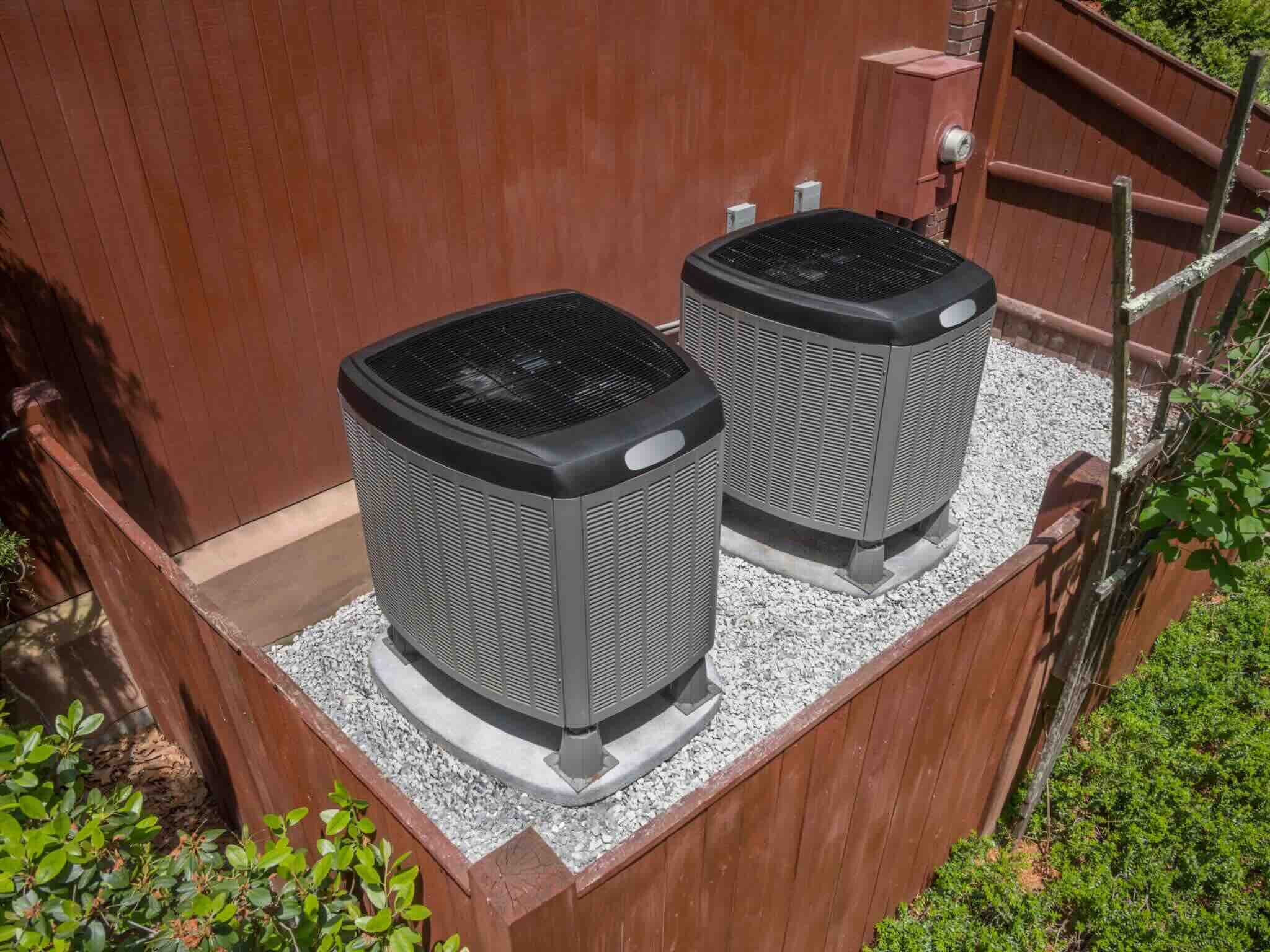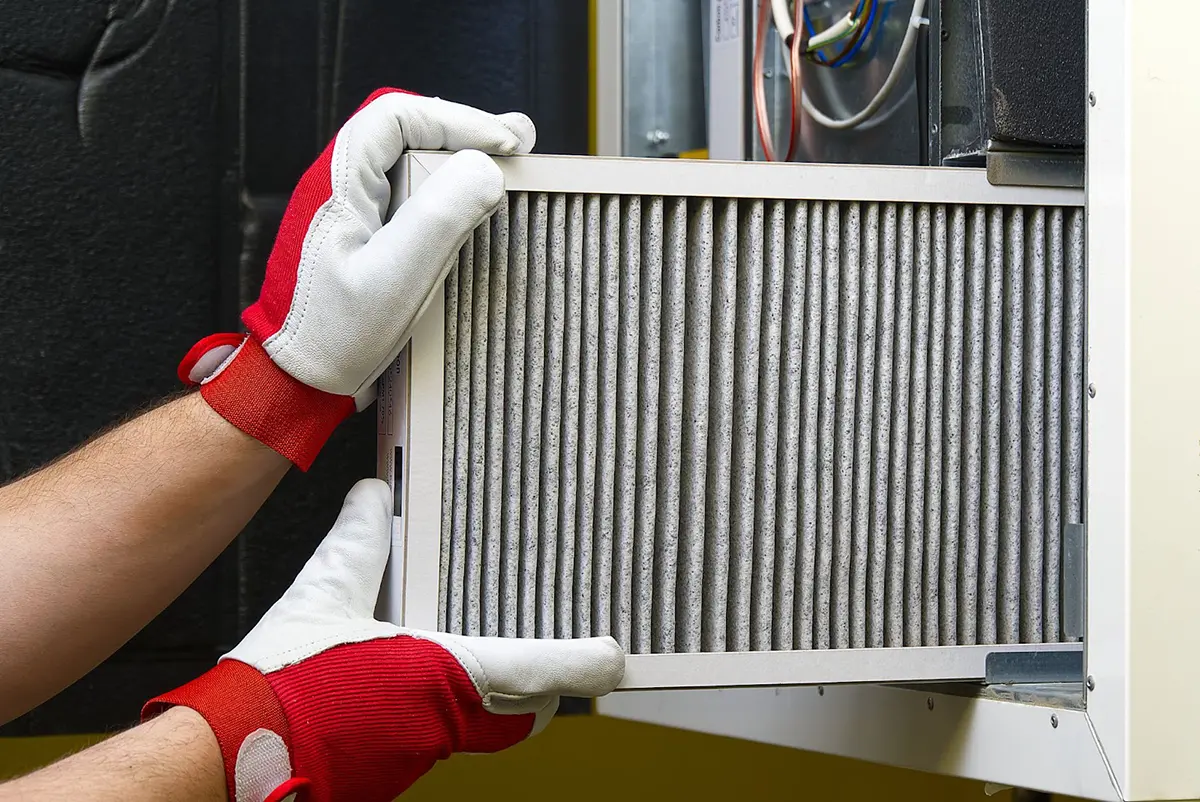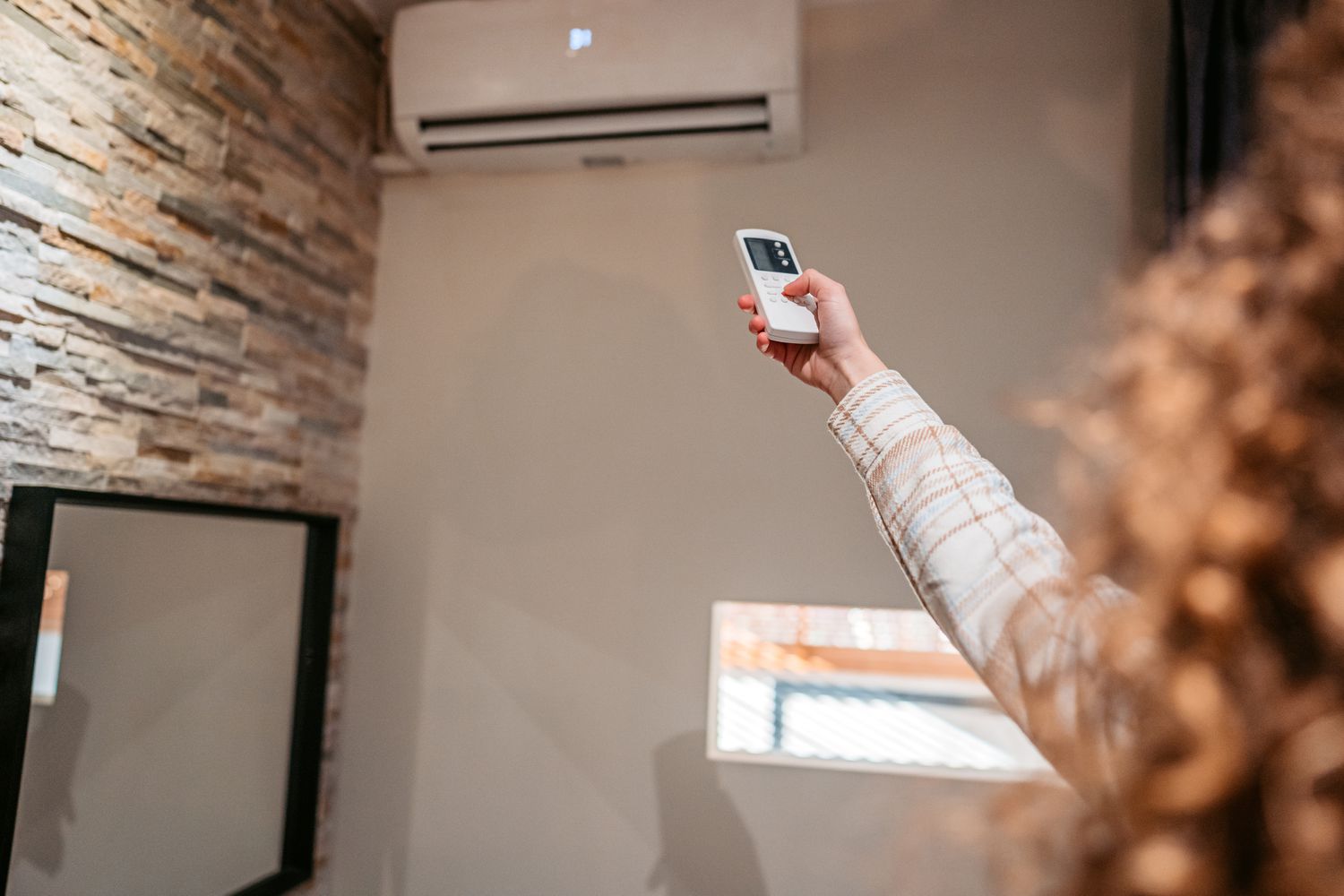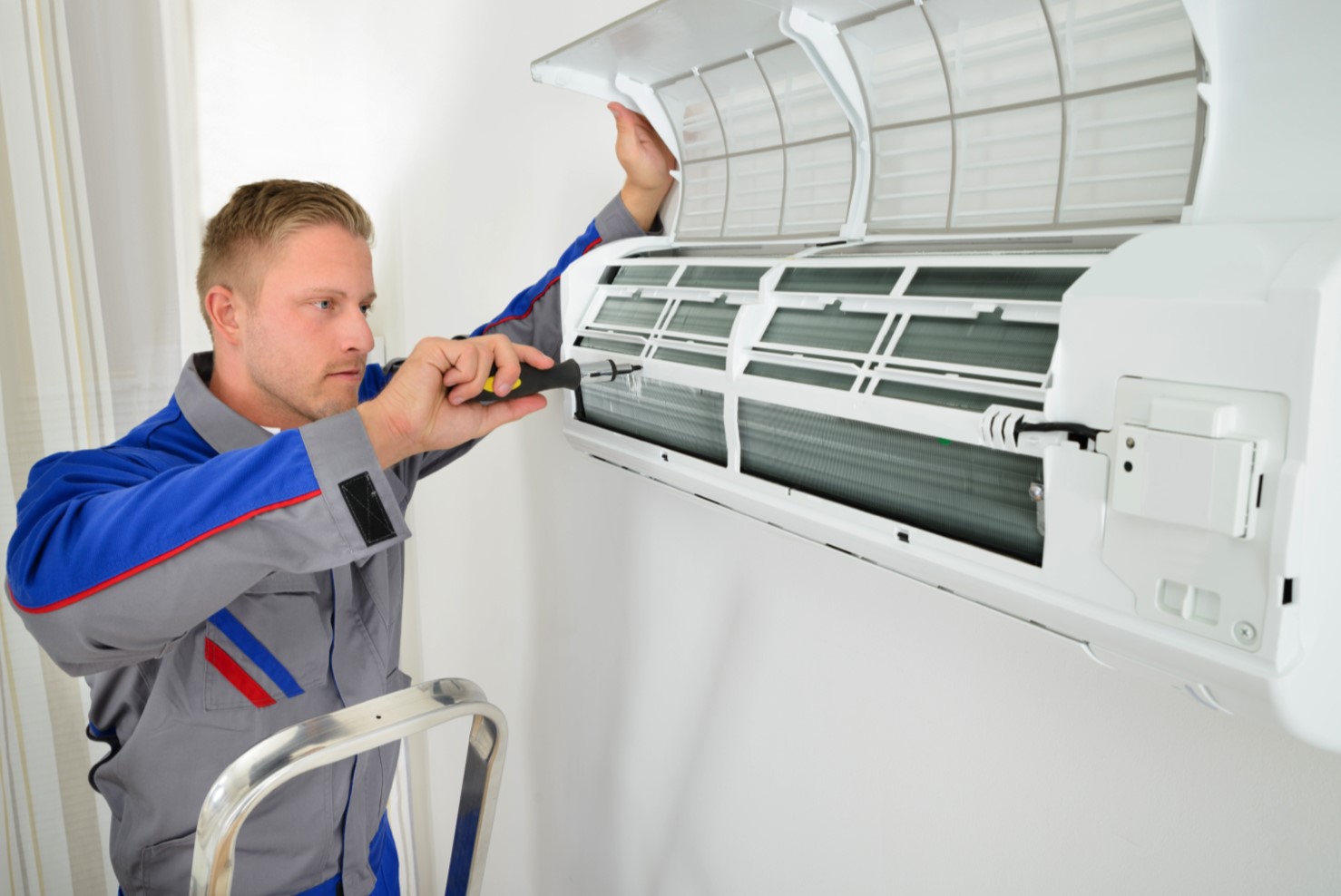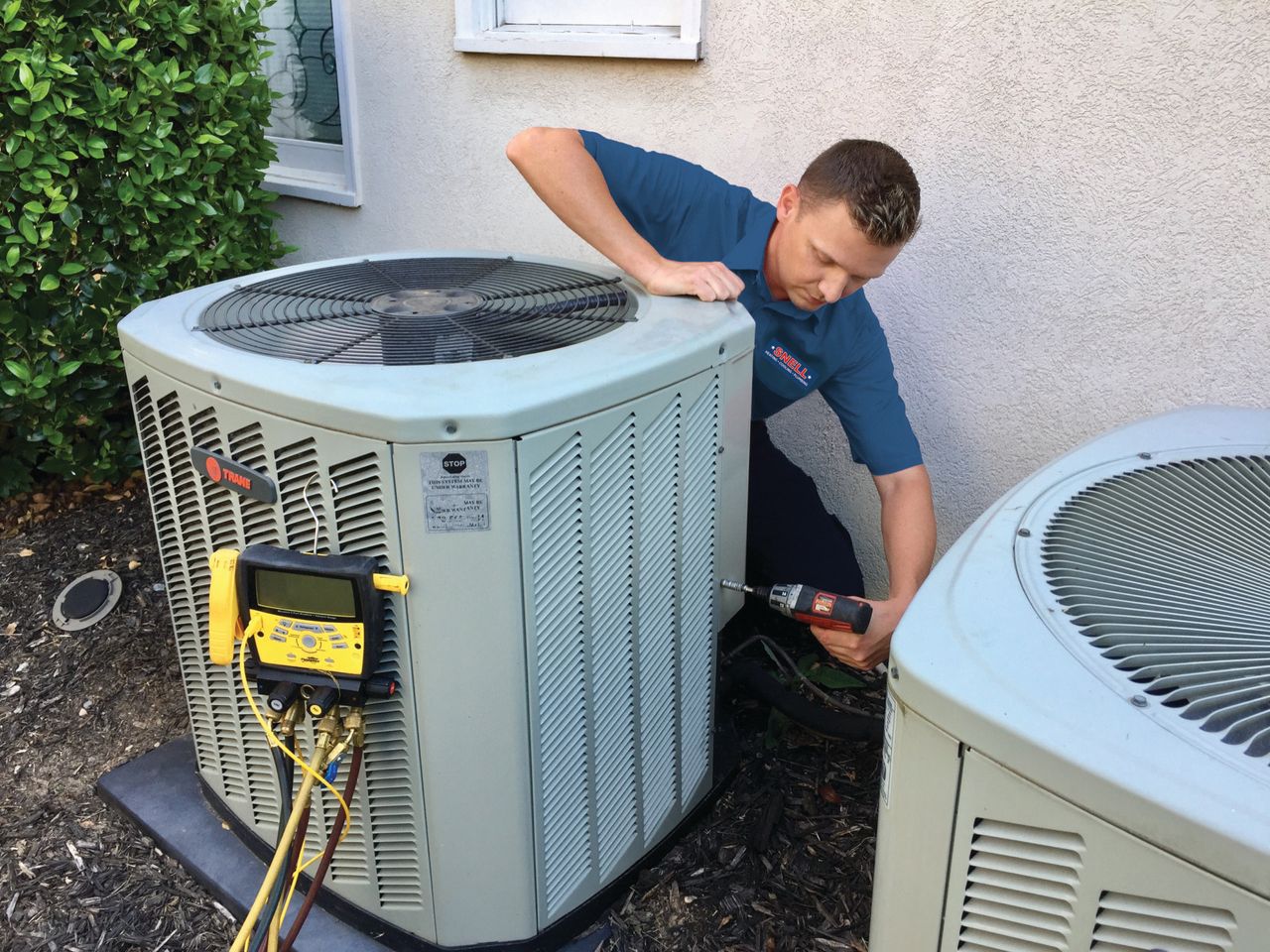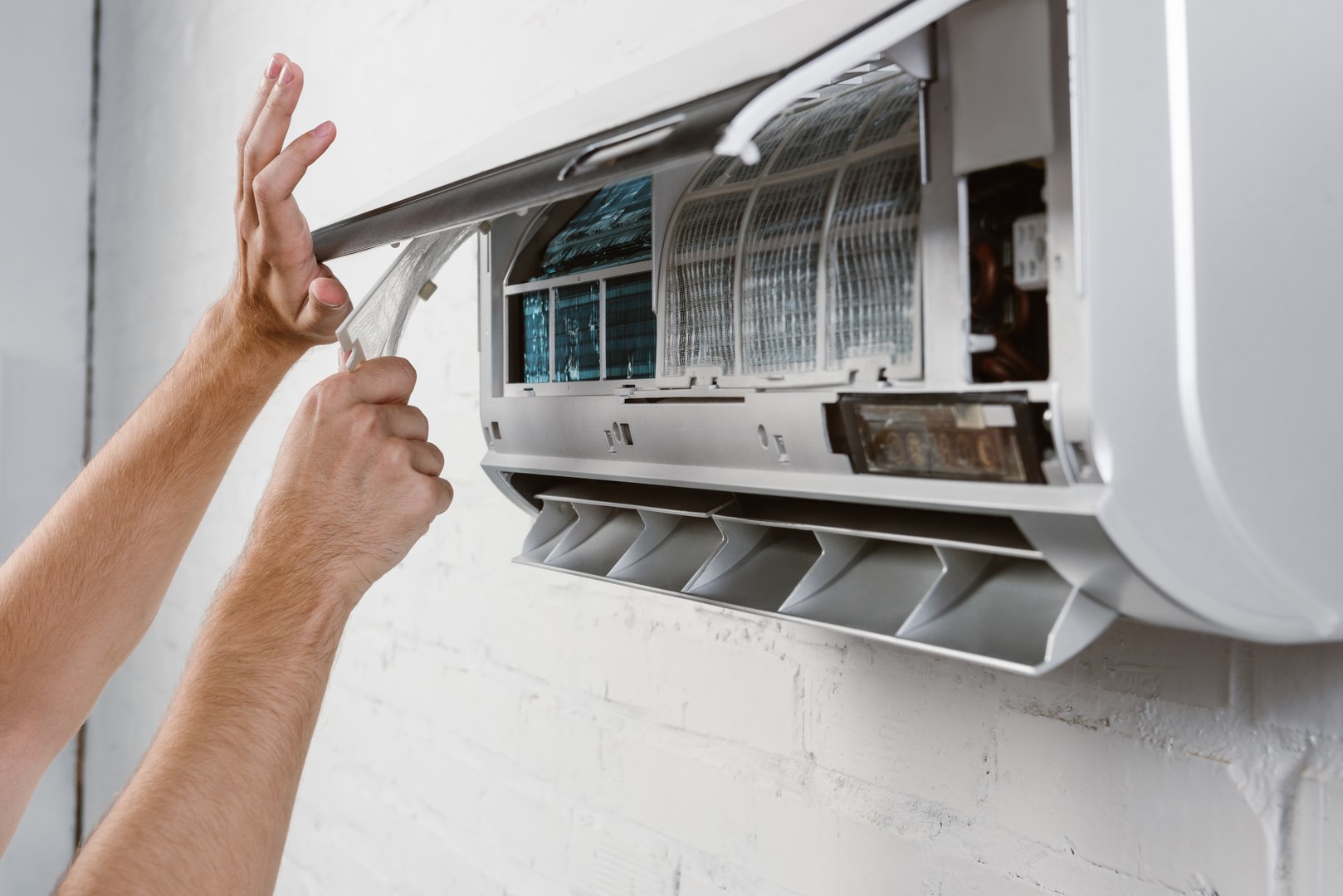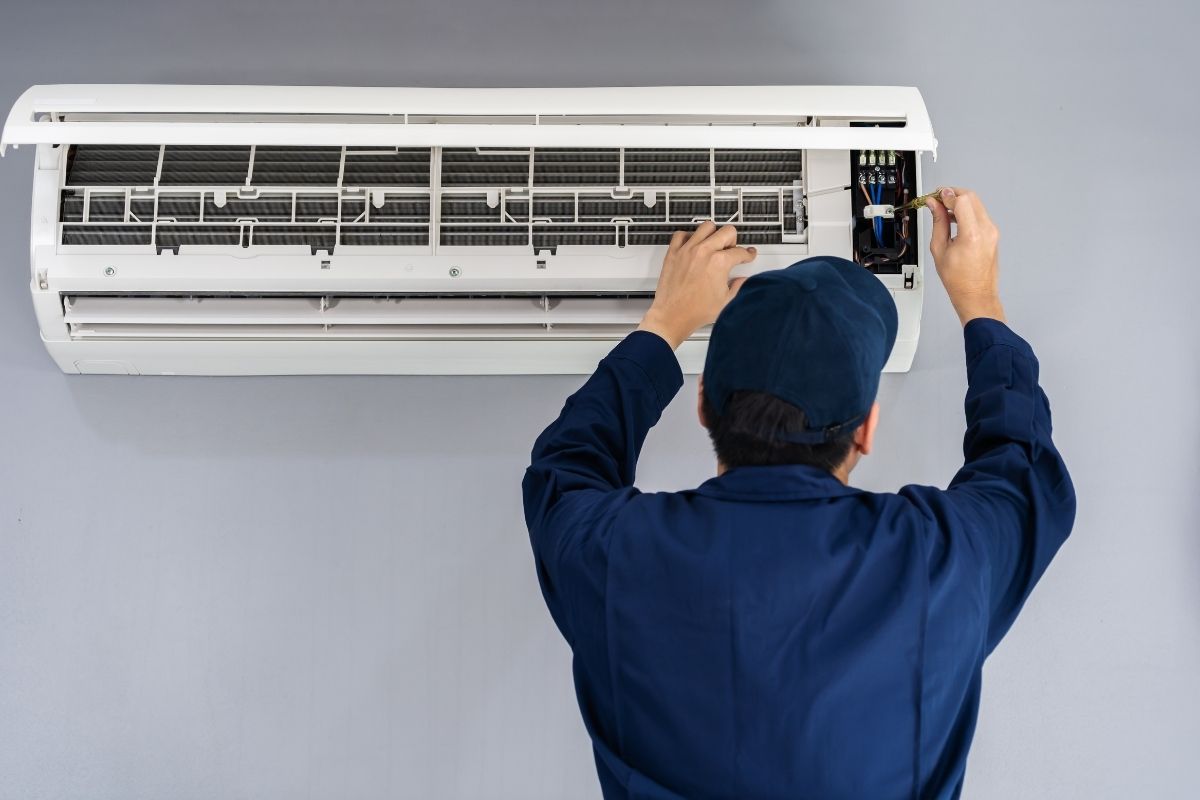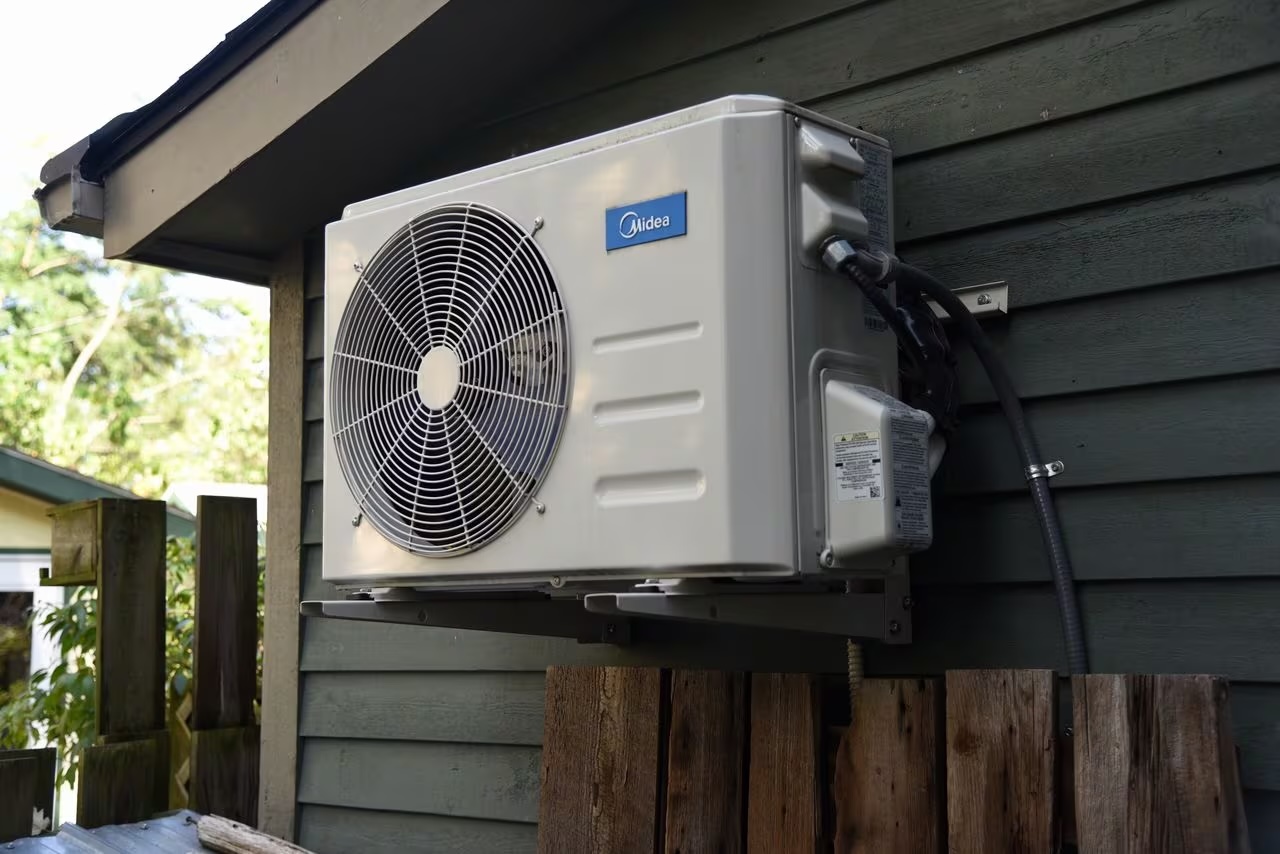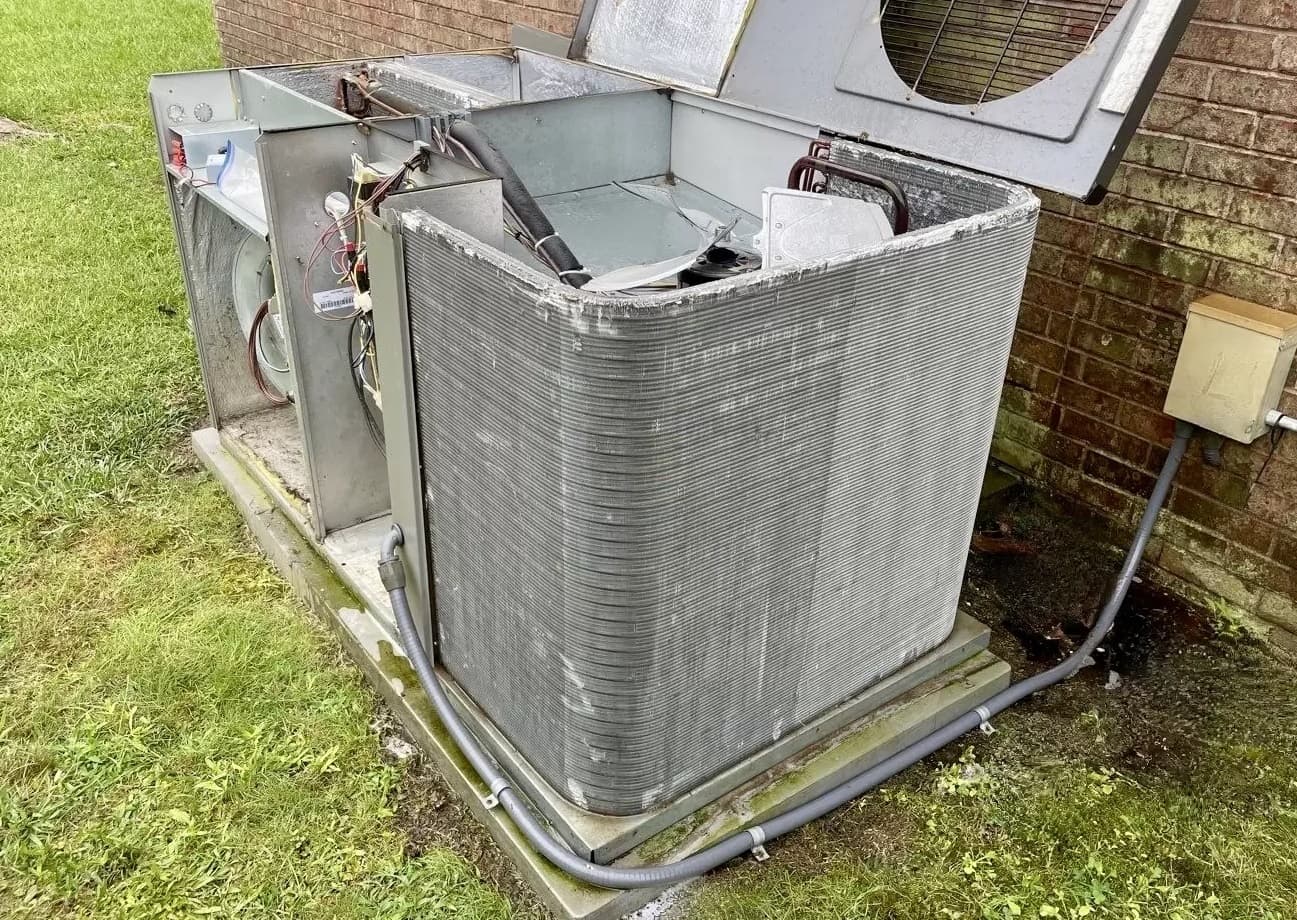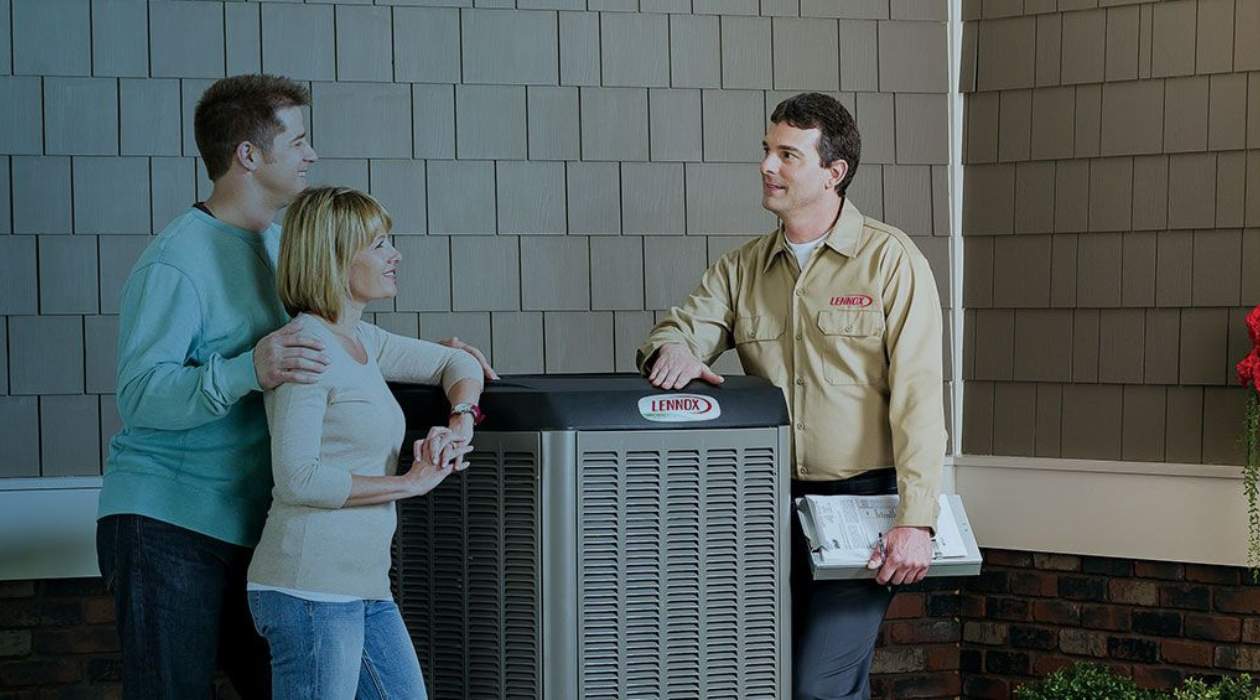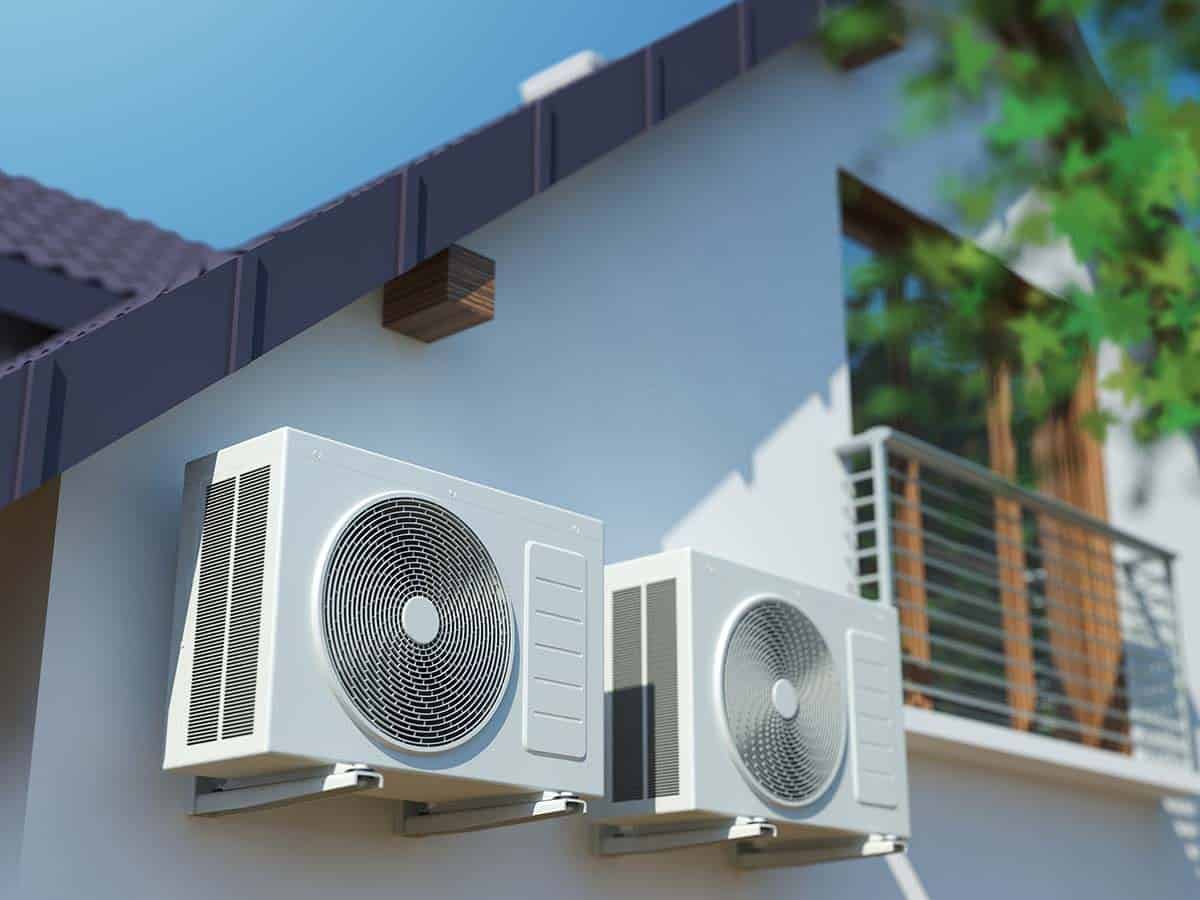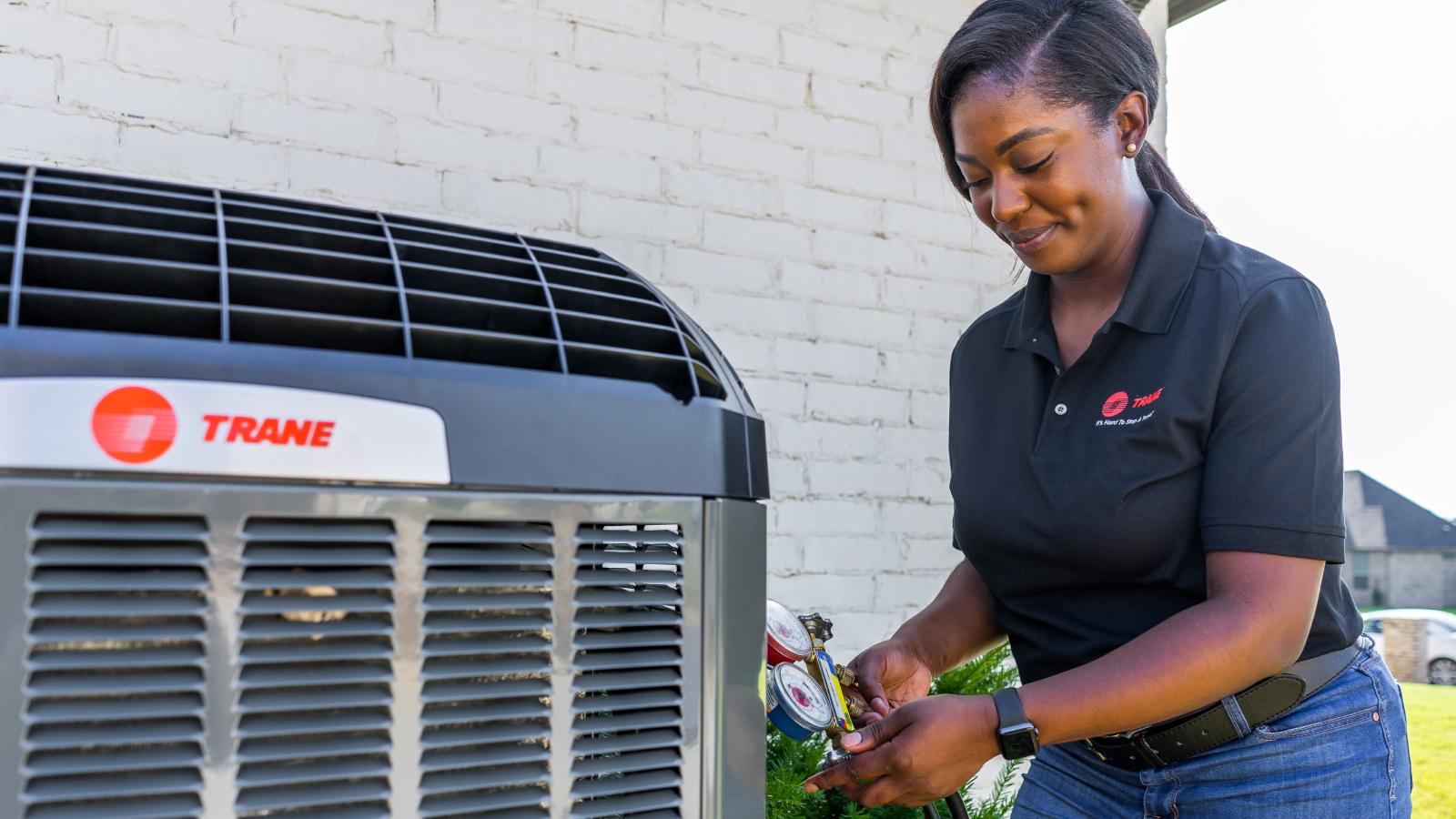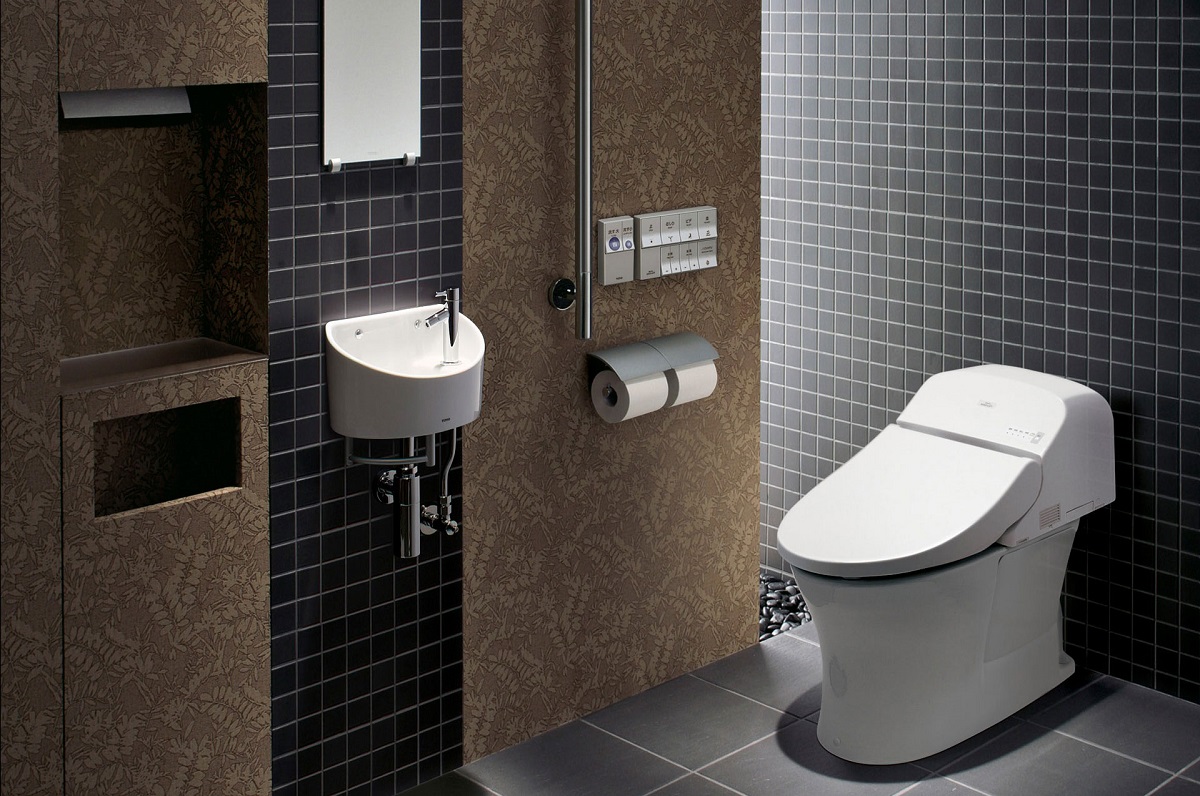Home>Home Maintenance>How Much Does A Carrier Air Conditioner Cost
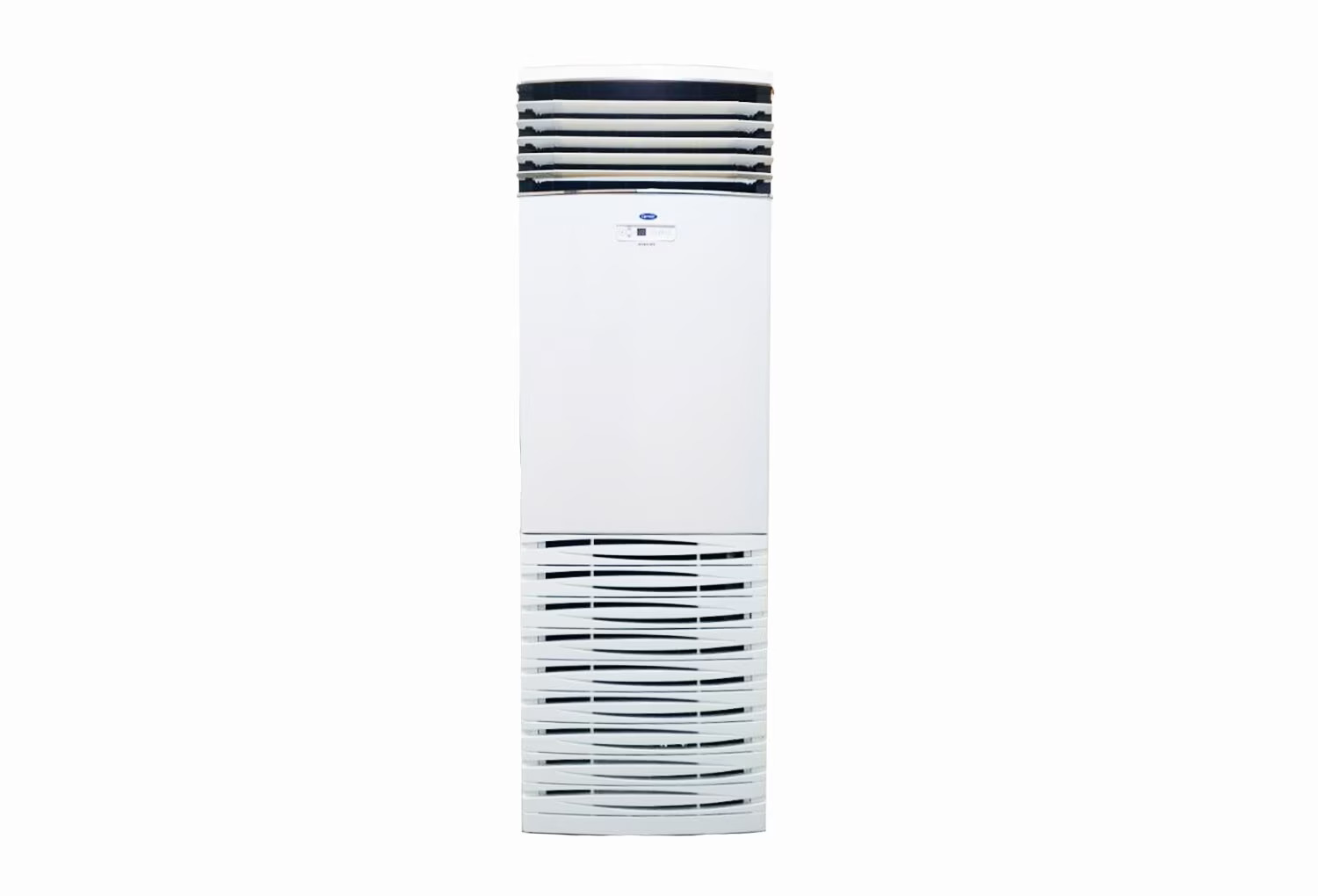

Home Maintenance
How Much Does A Carrier Air Conditioner Cost
Modified: March 24, 2024
Find out the cost of Carrier air conditioners for your home maintenance needs. Compare prices, features, and installation options for the perfect cooling solution.
(Many of the links in this article redirect to a specific reviewed product. Your purchase of these products through affiliate links helps to generate commission for Storables.com, at no extra cost. Learn more)
Introduction
Welcome to the world of Carrier air conditioners! If you’re considering installing a new air conditioning system in your home, you may be wondering about the cost of a Carrier air conditioner. Carrier is known for its high-quality, reliable, and energy-efficient cooling systems, but the price can vary depending on several factors.
In this article, we will explore the factors that affect the cost of a Carrier air conditioner, the different models available and their price ranges, additional features that can impact the price, installation costs, maintenance and warranty expenses, as well as a comparison with other brands’ air conditioner prices.
By the end of this article, you’ll have a comprehensive understanding of the costs associated with purchasing and installing a Carrier air conditioner, and be able to make an informed decision about which model is the right one for your home and budget.
So, let’s dive in and discover what goes into determining the cost of a Carrier air conditioner!
Key Takeaways:
- The cost of a Carrier air conditioner depends on factors like size, energy efficiency, and additional features. Prices range from $1,500 to $6,000, so it’s important to consider long-term benefits and energy savings.
- When comparing Carrier air conditioner prices with other brands like Lennox, Trane, Rheem, and Goodman, consider factors like energy efficiency and reliability. Investing in a high-quality unit can provide comfort and peace of mind.
Read more: How Much Does A Carrier HVAC System Cost
Factors that affect the cost of a Carrier air conditioner
When it comes to the cost of a Carrier air conditioner, there are several factors that can influence the price. Here are some key factors to consider:
- Size and cooling capacity: The size of the air conditioner is an important consideration. A larger unit with a higher cooling capacity will typically have a higher price tag. The cooling capacity is measured in British Thermal Units (BTUs), and the size of the unit needed will depend on factors such as the square footage of the space being cooled and the climate of your location.
- Energy efficiency: Carrier offers air conditioners with varying levels of energy efficiency. Units with higher energy efficiency ratings, such as those with ENERGY STAR certification, may be more expensive upfront but can result in significant energy savings over time. These models often come with advanced features like variable-speed compressors and smart thermostats.
- Technology and features: Carrier air conditioners come with a range of features and technological advancements. Units with advanced features like humidity control, air purifiers, and noise reduction technologies may come with a higher price tag. However, these features can greatly enhance your comfort and overall air quality.
- Installation requirements and complexity: The cost of installation can vary depending on factors such as the complexity of the installation, the type of existing HVAC system, and any additional ductwork or electrical work that may be required. It’s important to have a professional assess your home and provide an accurate estimate for installation costs.
- Location: The location of your home can also affect the cost of a Carrier air conditioner. Prices may vary depending on factors such as local market conditions and the availability of Carrier authorized dealers in your area.
These factors can impact the initial cost of a Carrier air conditioner. It’s important to carefully consider your specific needs, budget, and home requirements to choose the right air conditioning system that fits within your price range.
Different models and their price ranges
Carrier offers a wide range of air conditioner models to suit various needs and budgets. The price of a Carrier air conditioner can vary depending on the specific model and its features. Here are some popular Carrier air conditioner models and their price ranges:
- Carrier Infinity Series: The Infinity Series is Carrier’s top-of-the-line lineup, known for its exceptional performance and energy efficiency. These models often come with advanced features like variable-speed compressors, humidity control, and smart thermostats. Prices for the Infinity Series can range from $3,000 to $6,000, depending on the cooling capacity and additional features.
- Carrier Performance Series: The Performance Series offers a balance between performance and affordability. These models are designed to provide reliable cooling with energy-efficient features. Prices for the Performance Series can range from $2,000 to $4,500, depending on the cooling capacity and features.
- Carrier Comfort Series: The Comfort Series is Carrier’s budget-friendly option, offering reliable cooling without all the advanced features. These models are ideal for homeowners looking for a cost-effective solution. Prices for the Comfort Series can range from $1,500 to $3,000, depending on the cooling capacity and basic features.
It’s important to note that the price ranges mentioned above are just estimates and can vary depending on factors such as location, installation requirements, and additional features. It’s always recommended to consult with a Carrier authorized dealer to get an accurate price quote for the specific model you are interested in.
Remember, when comparing prices, consider the long-term benefits of energy efficiency and advanced features. Investing in a higher-priced, more efficient model can result in lower energy bills and a more comfortable living environment in the long run.
Additional features and their impact on price
In addition to the base model, Carrier air conditioners offer a range of additional features that can impact the price of the unit. These features can enhance your comfort, improve energy efficiency, and provide better indoor air quality. Here are some common additional features and their impact on the price:
- Variable-speed compressors: Carrier air conditioners with variable-speed compressors can adjust their cooling output to match the specific needs of your home. This feature helps to maintain a consistent temperature and can result in energy savings. Units with variable-speed compressors are often more expensive than those without this feature.
- Humidity control: Some Carrier models offer built-in humidity control, which can help to reduce excessive moisture in the air. This feature is particularly beneficial in humid climates and can help improve comfort levels. Air conditioners with humidity control may have a higher price compared to those without this feature.
- Smart thermostats: Carrier air conditioners can be paired with smart thermostats, which allow you to control the temperature of your home remotely using a smartphone or other connected devices. Smart thermostats offer convenience and energy-saving capabilities. However, incorporating this feature can increase the overall cost of the system.
- Air purifiers: Carrier air conditioners can be equipped with advanced air purification systems to improve indoor air quality. These systems help to remove allergens, pollutants, and odors from the air, creating a healthier living environment. Air purifiers are optional features that can impact the price of the unit.
- Noise reduction technology: Carrier offers air conditioner models with noise reduction technology to minimize operational noise. These units are designed to operate quietly, providing a peaceful and comfortable environment. Air conditioners with noise reduction technology may have a higher price point compared to standard models.
It’s important to carefully consider which additional features are important to you and align with your budget. While these features can enhance the performance and comfort of your air conditioner, they may come at a higher cost. Prioritize the features that are most important to you and consult with a Carrier authorized dealer to determine the additional cost for incorporating these features into your air conditioning system.
Installation costs and considerations
When purchasing a Carrier air conditioner, it’s essential to factor in the installation costs. The cost of installation can vary depending on various factors, including:
- Existing HVAC system: If you’re replacing an old air conditioning system, the installation process may be simpler and less expensive. However, if you’re installing a brand new system or making changes to your existing HVAC setup, additional costs may be involved.
- Ductwork: The condition of your existing ductwork will impact the installation cost. If your ductwork is outdated or in disrepair, it may need to be repaired or replaced, which can add to the overall installation cost.
- Electrical work: An air conditioner installation may require electrical work, such as running new wiring or upgrading the electrical panel to accommodate the new system. The complexity of the electrical work needed will impact the installation cost.
- Permits and inspections: Depending on your location, you may need to obtain permits and have the installation inspected by local authorities. These fees can add to the overall installation cost.
- Location and accessibility: The location of your home and the accessibility of the installation site can also affect the installation costs. If the installation is challenging due to difficult access or unique installation requirements, additional labor costs may apply.
It’s crucial to hire a professional HVAC contractor or a certified Carrier installer to ensure a proper and efficient installation. While it may be tempting to cut costs by opting for a cheaper installer, improper installation can negatively impact the performance and longevity of your air conditioner.
When requesting installation quotes, be sure to compare the prices of multiple installers and consider the reputation, experience, and customer reviews of each. Remember that quality installation is crucial to maximize the performance and energy efficiency of your Carrier air conditioner in the long run.
When considering the cost of a Carrier air conditioner, it’s important to factor in the size of the unit needed for your space, any additional features or upgrades, and the installation costs. It’s also a good idea to get quotes from multiple reputable dealers to ensure you’re getting the best price.
Maintenance and warranty expenses
Like any other appliance, Carrier air conditioners require regular maintenance to ensure optimal performance and longevity. It’s important to consider ongoing maintenance costs when budgeting for your air conditioning system. Additionally, understanding the warranty coverage is essential for protecting your investment. Here are some maintenance and warranty expenses to consider:
- Regular maintenance: Carrier recommends scheduling regular maintenance for your air conditioner to keep it running efficiently. This may include tasks such as cleaning or replacing air filters, inspecting and cleaning the outdoor unit, and checking refrigerant levels. While some maintenance tasks can be done by homeowners, it’s advisable to have a professional perform annual maintenance to ensure all components are in good working condition. The cost of professional maintenance can vary depending on the service provider and the specific maintenance tasks performed.
- Extended warranty: Carrier offers warranty coverage for their air conditioners, typically ranging from 5 to 10 years. However, you may have the option to purchase an extended warranty for additional coverage. Extended warranties can provide peace of mind and protect you from unexpected repair costs. The cost of an extended warranty will depend on factors such as the duration of coverage and the specific terms and conditions.
- Repair and replacement costs: Even with regular maintenance, there may be cases where your air conditioner requires repairs or component replacements. The cost of repairs can vary depending on the nature of the issue and the specific parts that need to be replaced. It’s important to have a budget set aside for potential repair costs throughout the life of your air conditioner.
Proper maintenance and timely repairs are crucial to keep your Carrier air conditioner functioning optimally and to ensure the longevity of the unit. Regular maintenance can help prevent major issues and minimize the chances of expensive repairs down the line. It’s advisable to consult with your installer or a professional HVAC technician for maintenance recommendations specific to your Carrier air conditioner model.
Lastly, familiarize yourself with the warranty terms and conditions of your Carrier air conditioner. Understand what is covered, the duration of coverage, and any associated costs or limitations. This knowledge will help you make informed decisions and protect your investment in case of any unforeseen issues.
Comparison with other brands’ air conditioner prices
When considering the cost of a Carrier air conditioner, it’s helpful to compare it to the prices of air conditioners from other brands. This can give you a better idea of the overall market range and help you make an informed decision. Here is a comparison of Carrier air conditioner prices with other popular brands:
- Lennox: Lennox is another well-known brand in the HVAC industry. The price of Lennox air conditioners is comparable to Carrier. Both brands offer similar features and energy efficiency options. Prices for Lennox air conditioners can range from $2,000 to $6,500 depending on the model and additional features.
- Trane: Trane is another reputable brand that offers high-quality air conditioners. Trane units tend to be slightly more expensive than Carrier, with prices ranging from $2,500 to $7,500. Trane is known for its energy-efficient units and advanced technologies.
- Rheem: Rheem is a brand that offers a range of air conditioning options at more affordable price points. Rheem air conditioners generally have prices ranging from $1,500 to $4,000, making them a more budget-friendly option compared to Carrier. However, the range of features and options may be more limited.
- Goodman: Goodman is known for offering affordable air conditioning systems. Prices for Goodman air conditioners can start as low as $1,000 and go up to $4,000. While Goodman may be a more budget-friendly option, it’s important to consider the overall quality and energy efficiency of the units.
It’s important to note that the prices mentioned above are estimates and can vary depending on factors such as location, installation requirements, and additional features. Furthermore, the reliability and performance of an air conditioner should also be taken into account when comparing brands.
When comparing prices, consider the long-term benefits and energy efficiency of the units. A higher upfront cost for a more energy-efficient air conditioner can result in lower energy bills and savings over time.
Ultimately, the choice between Carrier and other brands will depend on your specific needs, budget, and preferences. Consulting with a professional HVAC installer or a Carrier authorized dealer can help you assess your options and make an informed decision.
Final thoughts
Choosing a new air conditioner for your home is a significant investment, and understanding the cost factors involved is crucial in making an informed decision. Carrier air conditioners are known for their reliability, energy efficiency, and advanced features, but the cost can vary depending on various factors.
Factors that affect the cost of a Carrier air conditioner include the size and cooling capacity, energy efficiency, additional features, installation requirements, and location. It’s essential to assess your specific needs and budget to select the right Carrier model that fits within your price range.
When considering the cost, it’s important to also factor in ongoing maintenance and warranty expenses. Regular maintenance is necessary to keep your air conditioner running efficiently and to ensure its longevity. Additionally, understanding the warranty coverage helps provide peace of mind and protection against unexpected repair costs.
Comparing the prices of Carrier air conditioners with those of other brands can give you a better understanding of the overall market range. Consider the features, energy efficiency, and reliability of the units when making comparisons.
Lastly, it’s crucial to hire a professional HVAC contractor or a certified Carrier installer for the installation. Improper installation can negatively impact the performance and lifespan of your air conditioner.
By carefully considering these factors and understanding the costs involved, you can make an informed decision when it comes to purchasing and installing a Carrier air conditioner. Remember to consult with a Carrier authorized dealer to get accurate pricing and recommendations based on your specific needs.
Investing in a high-quality Carrier air conditioner can provide comfort, energy savings, and peace of mind, making your home a cool haven during the hot summer months.
References
Here are some references that were used in the creation of this article:
- Carrier Air Conditioner Buying Guide” – Carrier.com
- “Understanding HVAC Energy Efficiency Ratings” – EnergyStar.gov
- “Choosing the Right Air Conditioner for Your Home” – Energy.gov
- “Air Conditioners: Installation and Maintenance” – Consumer Reports
- “How to Choose an Air Conditioner” – ThisOldHouse.com
- “Comparing Air Conditioners: What’s the Best Brand?” – HVAC.com
- “The Pros and Cons of Different Types of Air Conditioners” – BobVila.com
- “The Benefits of Regular AC Maintenance” – The Spruce
- “Air Conditioner Buying Guide” – Rheem.com
- “How to Maintain an Air Conditioner” – HGTV
These references provide valuable information on the cost factors, features, and maintenance considerations of air conditioners, including those from Carrier and other brands. They serve as authoritative sources to ensure the accuracy and reliability of the information presented in this article.
It is important to note that prices and information may vary over time, so it is recommended to consult with a Carrier authorized dealer or a professional HVAC contractor for the most up-to-date and accurate pricing and information specific to your location and requirements.
Frequently Asked Questions about How Much Does A Carrier Air Conditioner Cost
Was this page helpful?
At Storables.com, we guarantee accurate and reliable information. Our content, validated by Expert Board Contributors, is crafted following stringent Editorial Policies. We're committed to providing you with well-researched, expert-backed insights for all your informational needs.
